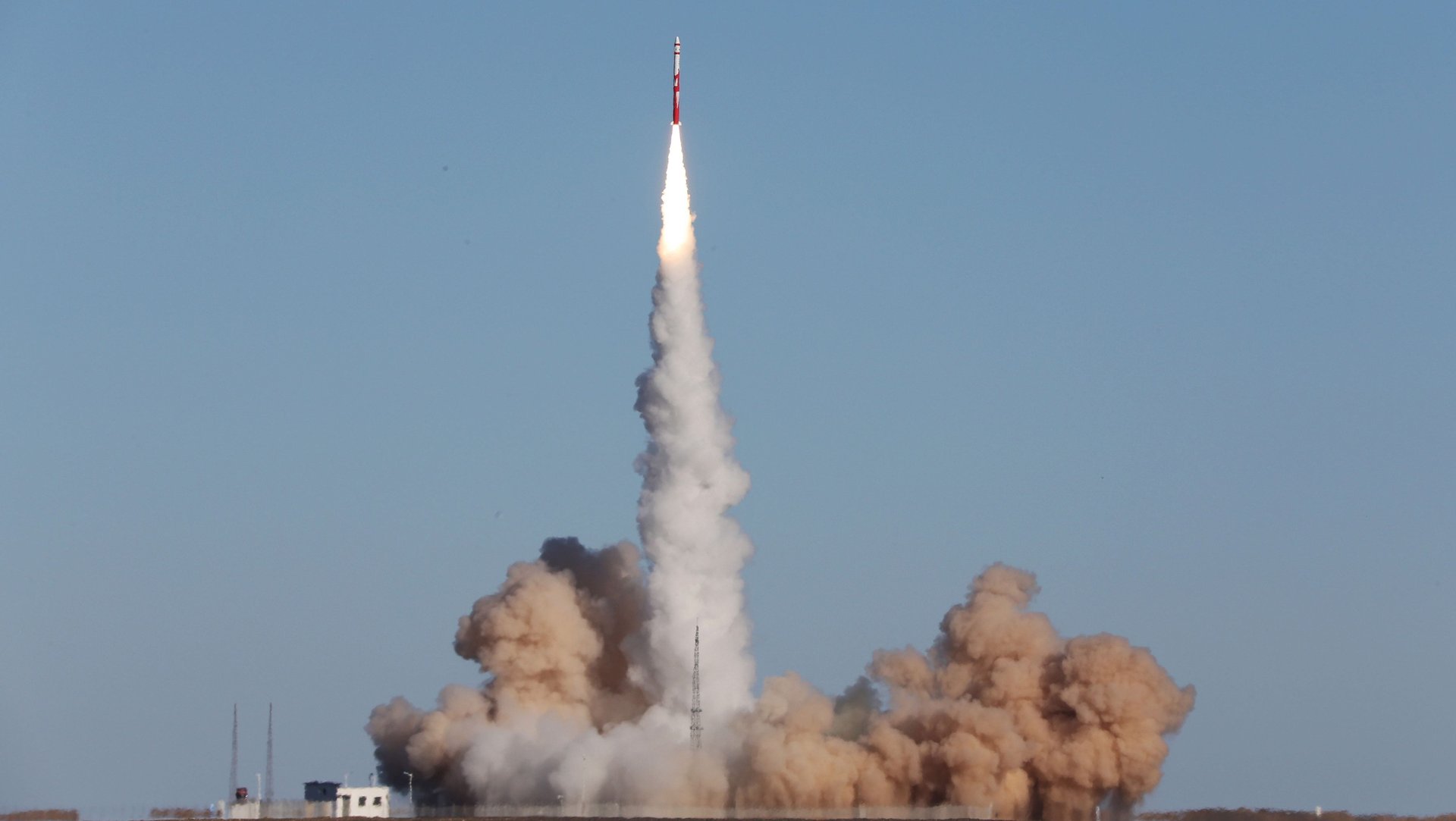China’s first private orbital launch attempt fails
China’s private space industry saw a setback in its development over the weekend after a Chinese rocket firm failed to send a satellite into orbit.


China’s private space industry saw a setback in its development over the weekend after a Chinese rocket firm failed to send a satellite into orbit.
The three-stage solid-fueled rocket, developed by Beijing-based private firm LandSpace, took off from the national launching site in Jiuquan in north-central China on Saturday (Oct. 27) around 4pm local time. But “something abnormal happened during the third stage,” according to a post by the firm on social media Weibo (link in Chinese). That happened around seven minutes (link in Chinese) after the rocket took off from the ground. As a result, the rocket failed to deliver the satellite “Future,” owned by China’s state broadcaster CCTV, to orbit.
A company representative said LandSpace is still analyzing what led to the failure.
LandSpace’s among the at least half a dozen Chinese private rocket companies founded since 2014, when the country began calling for private capital investments in building and operating commercial satellites. China’s also trying to get other nations to use its global satellite network, Beidou, a system China hopes can become a competitor to the US Global Positioning System.
The failed attempt of LandSpace’s rocket, known as Zhuque-1, or “vermilion bird,” a mythological symbol that represents fire, means that so far no Chinese private firm has succeeded in an orbital launch, a key milestone for the industry. Earlier this year, other Chinese rocket makers like OneSpace and iSpace successfully carried out suborbital launches.
LandSpace had said it would launch liquid-fueled Zhuque-2 next year. It’s unclear how the setback will alter its plans.
On Sunday, LandSpace’s founder Zhang Changwu posted a picture on social media platform WeChat of Jiuquan, observing it was the same site from where China tested its first nuclear missile in 1966, a time when the country was far from the economic and technological giant that it is today. Along with the picture, he wrote, “When you have nothing, it’s the will that matters. But will is even more important when you have everything.”